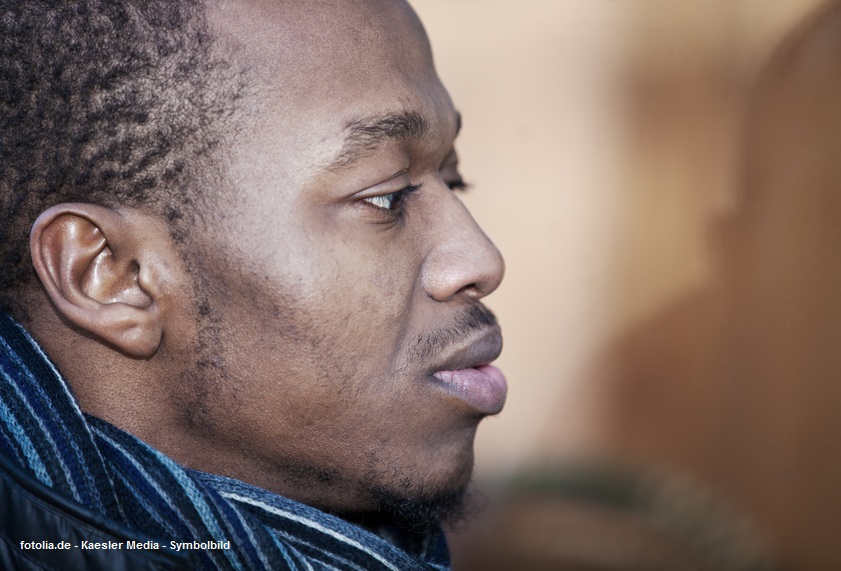Kojobesia has been fighting for gay rights in Ghana since his youth. He now lives in Hamburg. But he has not given up on his dream of a gay community centre in Accra.
There are situations where a man has to cast the first stone. For Kojobesia*, this was the case in 2002. When the then 19-year-old Ghanaian left his parents' flat in Accra, he met a neighbour. As she did every day, she made a pointed remark. "Could you stop strutting around and behave like a normal man?" she shouted across the courtyard. Everyone could hear. "Otherwise you'll never find a wife!" That was the straw that broke the camel's back. "How dare you say something like that!" Kojobesia shouts, grabs a stone and throws it at his critic. It misses its target and the neighbour screams in horror. Wild abuse follows and the police arrive. Kojobesia has to go to the police station.
A young man explodes - and a human rights campaigner is born. "That was my first fight," says Kojobesia 13 years later in Hamburg. "If anyone in our neighbourhood insulted me because I was gay, I fought," says the now 32-year-old. "It usually ended at the police station." It often ended with an interrogation, but Kojobesia has also spent the night in a cell until his parents posted bail. The two stand by him. "Be what you are," his father told his son. "Don't worry about what other people think." This attitude cannot be taken for granted. Homosexuality is illegal in Ghana, with a maximum sentence of three years. Gays and lesbians are a favourite target of both political and religious leaders. This repeatedly leads to violence. As recently as February 2015, a well-known gay party organiser was beaten up in Accra when he wanted to go on a supposed date.
Nevertheless, Ghana has a lively gay subculture. The housing estates known as "compounds" not only encourage catty neighbours, but also promote community. "We have gay parties on the street," explains Kojobesia. Even a birthday party is enough to close off through traffic. Then people drag tables and chairs outside and turn up the music. "Some neighbourhoods are known to be gay," explains Kojobesia. "The men there dance in public in high heels and veils."
Life in Accra actually takes place on the streets. This is also where Kojobesia made his first gay contacts. With sex came independence. At 17, he had his first boyfriend, a much older European. "My partner even paid my monthly school fees," reports Kojobesia. "I always had friends who looked after me. And when there wasn't enough money, I just went out on the street and looked for another man." Kojobesia assures us that he was happy back then. "When you have money, you are independent. You don't have to worry about what other people say or what your family wants from you."
Kojobesia came to human rights work via sex work. We will report on this in the next few days.
*Name changed by the editors. In Ghanaian colloquial language, "Kojobesia" is the name given to a man who - in the eyes of the majority society - does not appear particularly masculine.










